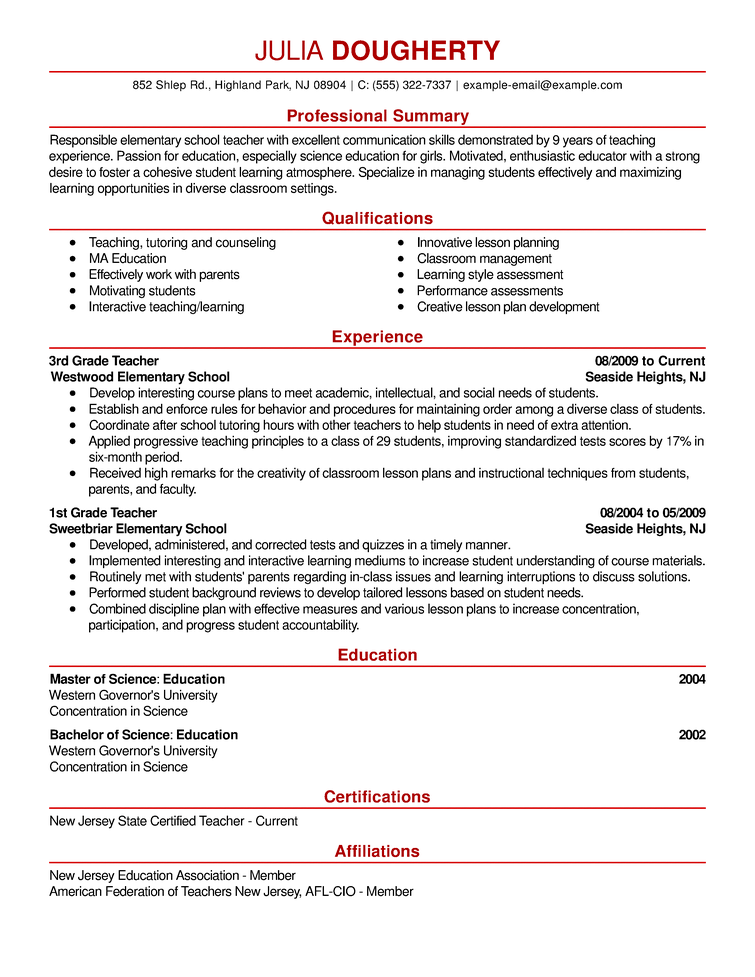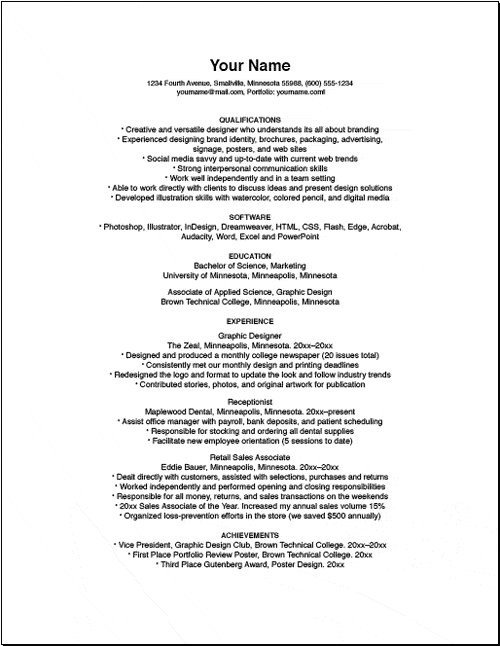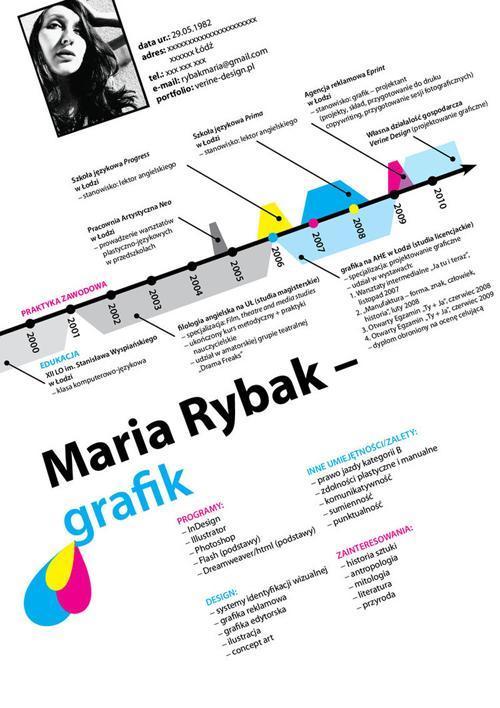Stuck in a job rut nightmare? It’s never too late to dig yourself out. And an all-star resume might just be the shovel you need.
Picture this: You finally get the chance to apply for your dream job. You already know what you’re going to wear to the interview. You’ve envisioned which pictures to hang in your office, and how you plan to decorate your desk. You just know that once they meet you in person, they won’t be able to say “No.”
But before you can sell yourself in person, you have to rely on your resume to do the initial talking.
And just the sheer mention of the “R” word has you cringing.
It can be difficult, especially for personable people, to describe their life’s work on a piece of paper. But these 10 resume tips can land you the breakout interview you’ve been working for. That dream job will be as good as yours.
1. Make your resume interactive.
You can add interactive resume links to your social media profiles, like LinkedIn, and examples of your work to give the hiring manager extra opportunities to explore your strong points. However, make sure you test every feature before you send your resume.
2. Take advantage of formatting tools to help important content stand out.
You can use different font sizes, bolded or italicized words to highlight important information, like this example:
But don’t overdo it. Using formatting is supposed to help the recruiter find information easier, but using the wrong formatting can complicate your resume, like in this example:
3. Learn how to utilize your real estate effectively.
You only get one page (two, tops) to show your stuff, so you need to use it wisely. But instead of sacrificing font size or cramming text into every white space, try decreasing your margins, and minimizing the size of blank lines between content.
For instance, you might choose to use an 11-point font for your content, but you can change the blank lines in between sections to an 8-point font without your text becoming cluttered or unreadable.
Also remember to use enough white space and minimize text on the page for easy searchability. You can do this by replacing long words with short ones (bigger isn’t better in this case), and writing phrases instead of complete sentences.
4. Empower a keyword strategy.
Recruiters typically scan resumes for certain criteria, and using action words early on in your resume can help to spark their interest:
- Utilized
- Developed
- Managed
- Led
- Designed
- Initiated
- Taught
Front load these keywords in your job duties and accomplishments so the recruiter won’t be able to miss them.
5. Don’t overdo it on design work.
Sure, you want your resume to look nice (at least nice enough to catch their attention), but the content within will ultimately land you in the Yes or No stack.
Hiring managers are used to a standard (if boring) format. It helps them find the information they want to know quickly. Differentiating yourself from the stack may help get you noticed, but no recruiter wants to spend extra time searching for key findings in your reinvented resume because your design skills got in the way.
Here’s an example of how a nice-looking resume’s design confuses the content:
Yes, it gets attention. But will it get an interview? Perhaps for a design job. Probably not for any other job.
6. Your skills and job expertise should reflect how you can do the job you are applying for, not how you did your previous job.
It’s important to recruiters how you performed in your previous jobs, but it’s even more important to forecast how you might perform if you’re offered the job.
No, this doesn’t mean creating a brand new resume from scratch each time you apply to a job. But it does mean you should make a few tweaks to tailor your resume to each job you apply for.
7. Include the same language of the job posting into your resume.
Nowadays, your resume will go through a computer scanner before it ever reaches human eyes. These scanners are searching for keywords and information: if yours has it, you might move on to the next step.
Start by looking for clues in the job description. Add their language verbatim into your resume to ensure your skills match their requirements. This could mean the difference of an actual person seeing your resume, or having your digital resume hang out in eternal cyberspace.
8. Put your strongest qualities at the top.
Oftentimes recruiters will not read your resume word for word as they decide to move forward with interviews. If you want certain information to get noticed, it’s best to put it first.
Start by listing your most relevant duties at the top of each job on your resume. These should be the specific items also listed in the job description. Also, make sure you are only including the most important information, rather than every single duty you can think of. You’ve got limited space and time to make an impression, so put your best foot (and only your best foot) forward.
9. Be specific in listing your achievements.
Details tell the story that recruiters want to know about you, so make sure you’re giving them a clear picture of what you’re worth. For instance, instead of listing things like
- Promoted to shift manager
- Problem solver
- Self-directed
you could say
- Managed a team of 7 employees after promotion to shift manager
- Solved a shipping problem that saved $5,000 a year in materials
- Initiated a company-wide account review that generated $6,000 in annual revenue
10. Only talk about skills that pertain to the job.
Listing irrelevant hobbies or skills that might not carry over to the job you’re applying for is a blatant waste of real estate on your resume. Yet many folks continue to include useless information as page fillers.
For example, if you are applying for an office job, don’t waste time talking about how you maintained the office appearance, or made fresh coffee daily, or ordered office supplies. These things are either assumed, capable of anybody, or don’t matter.
Instead, you could talk about how many clients or employees you managed, how you initiated a new process that boosted efficiency, or a mistake you caught that saved the company some money. This is your chance to talk about the things that differentiate you from other applicants.
You don’t have to be an excellent writer to write an excellent resume!
Use these 10 resume tips as your starting block to help you finish the job race and you’ll emerge with the dream job you know you deserve.
Featured photo credit: Flaticon via flaticon.com















































